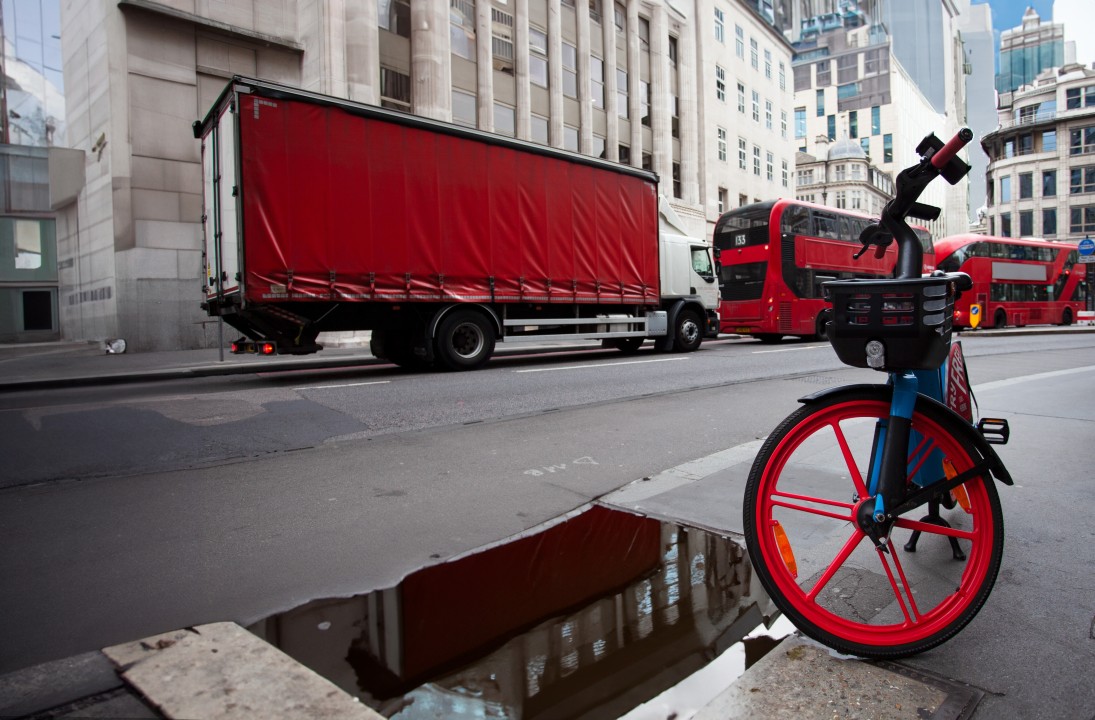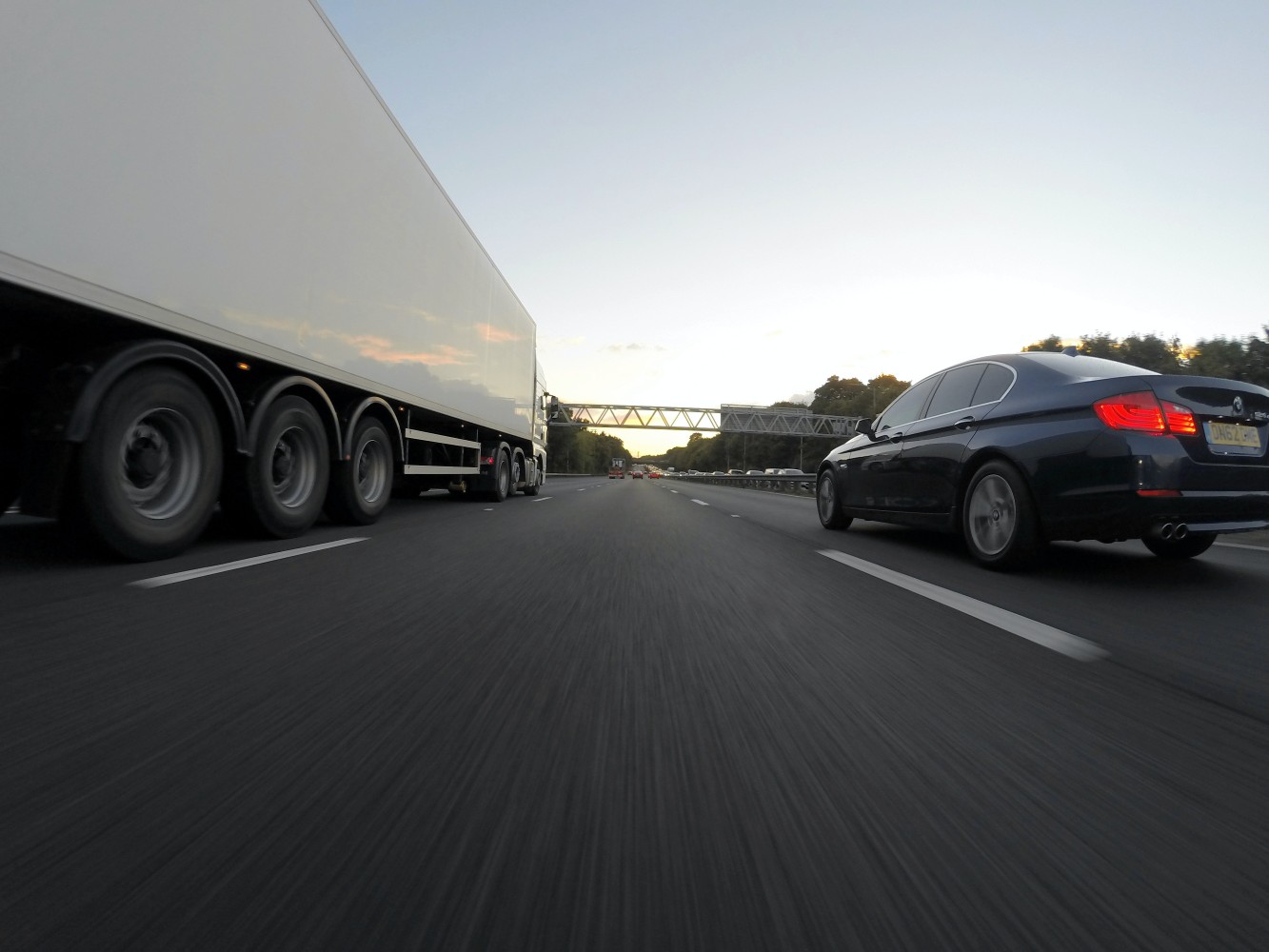
Susie Jones
Cinco mitos del transporte por carretera desmentidos
Creado: 19/08/2024
•
Actualizado: 19/08/2024
La conducción de camiones ha sido la columna vertebral del comercio mundial durante siglos, repartiendo mercancías y artículos de primera necesidad por todo el mundo. Sin embargo, a pesar de su papel esencial, el transporte por carretera ha estado envuelto durante mucho tiempo en mitos y conceptos erróneos.
Aunque algunos de estos mitos se toman con humor, otros pueden perjudicar al sector del transporte por carretera y a quienes trabajan en él. Por lo tanto, es fundamental desmentir estas ideas erróneas para garantizar que la conducción de camiones siga siendo una opción profesional atractiva para las generaciones futuras. Hemos preguntado a nuestra comunidad de conductores en Facebook sobre algunos de los mayores mitos que han oído durante su carrera.
1. Los camioneros se pasan el día sentados
"Lo único que hacen los camioneros es estar sentados todo el día". Una frase comúnmente escuchada por el camionero, Luke.
El mundo del transporte por carretera es algo más que conducir. Los camioneros trabajan a menudo con otras personas en terminales, muelles y almacenes para descargar y cargar mercancías. Al volante, tampoco todo es coser y cantar. Los camioneros deben concentrarse en maniobrar sus vehículos y cumplir las estrictas normas del tacógrafo. Es imprescindible conocer bien las zonas por las que se puede y no se puede circular, así como ser consciente de los peligros potenciales.
2. Todos los camioneros son hombres
Se trata de un estereotipo anticuado que no refleja la realidad moderna del transporte por carretera. Recientemente, ha habido un cambio significativo en la proporción de conductores de camiones masculinos y femeninos. En 2021, las mujeres conductoras representaban sólo el 1% de los 315.000 camioneros del Reino Unido. Sin embargo, este número aumenta año tras año a medida que la industria evoluciona y adopta la inclusividad. Conductoras como Jodi Smith son valiosas defensoras de las mujeres en el sector. Jodi documenta su experiencia como camionera en Internet, inspirando a otras a ponerse al volante.
3. Cualquiera puede conducir un camión
Muchos asumen que si pueden conducir un coche, son capaces de conducir un camión. Sin embargo, la conducción de camiones requiere unas aptitudes únicas que pueden no ser adecuadas para todo el mundo. Para conducir un camión comercial se necesita un Certificado de Aptitud Profesional (CAP). Para obtenerlo, los conductores deben superar cinco pruebas:
Teoría
Estudio de caso
Ejercicios todoterreno
Conducción en carretera
Demostraciones prácticas
Además, la conducción de camiones exige un estilo de vida que no es para todo el mundo, con largas horas aislado en la carretera que a menudo presenta retos inesperados.
4. Distancia de frenado
"Los conductores de coches piensan que la distancia de frenado de un camión es la misma que la de un coche" es algo que el camionero Paul ha oído demasiadas veces.
La distancia de frenado de un camión es muy diferente a la de un coche debido a varios factores: - Peso: el peso total de un camión cargado es mayor que el de un coche normal, lo que significa que necesitará más fuerza para frenar y detenerse.
- Mecánica: el sistema de frenado de un camión está adaptado para cargas pesadas, lo que significa que tienen ejes y componentes de freno más grandes y robustos, lo que se traduce en tiempos de respuesta más largos y distancias de frenado mayores.
A 100 km/h, un camión necesita 132 m para frenar, frente a los 73 m de un turismo, lo que subraya la importancia de dejar suficiente espacio entre el conductor y el camión cuando se frena bruscamente.

5. Los camioneros son sucios
A lo largo de los años, los camioneros han recibido el estereotipo de sucios y vagos, una generalización injusta. Muchos conductores de larga distancia pasan mucho tiempo fuera de casa y en sus cabinas, lo que significa que su higiene y la limpieza de éstas son una prioridad.
Es fundamental disipar los mitos y conceptos erróneos que rodean a la conducción de camiones para comprender mejor la profesión. Desacreditar algunos de los mitos más comunes creará una industria más atractiva para las generaciones futuras y aumentará la concienciación de que la conducción de camiones es una profesión altamente cualificada que desempeña un papel vital en nuestra economía.
¿Se siente solo el camionero?
Antes de plantearse una carrera como camionero, es fundamental entender qué implica el trabajo. Un problema para muchos camioneros es lidiar con la soledad: largas horas en la carretera sin apenas comunicación es difícil para algunos, pero un sueño para otros.
Además, el tiempo lejos de los seres queridos puede pasar factura a muchos. Sin embargo, cada vez es más fácil para los conductores comunicarse con amigos y familiares por teléfono o videollamada. También hay muchos foros y consejos útiles a disposición de los camioneros para aliviar la soledad.
¿Puede un camionero tener un segundo empleo?
Mientras el Reino Unido atraviesa la crisis del coste de la vida, más conductores se plantean tener un segundo empleo. Sin embargo, el empleo secundario plantea problemas y riesgos, sobre todo en el mundo del transporte por carretera. Los conductores deben considerar si existe una política de empleo secundario en su empresa antes de seguir adelante.
A la hora de crear una política de empleo secundario, las empresas y los operadores deben tener en cuenta los efectos sobre el rendimiento, la asistencia y la fatiga de los conductores. Por no hablar de mantener el cumplimiento de las normas sobre horarios y tiempo de trabajo de los conductores.


